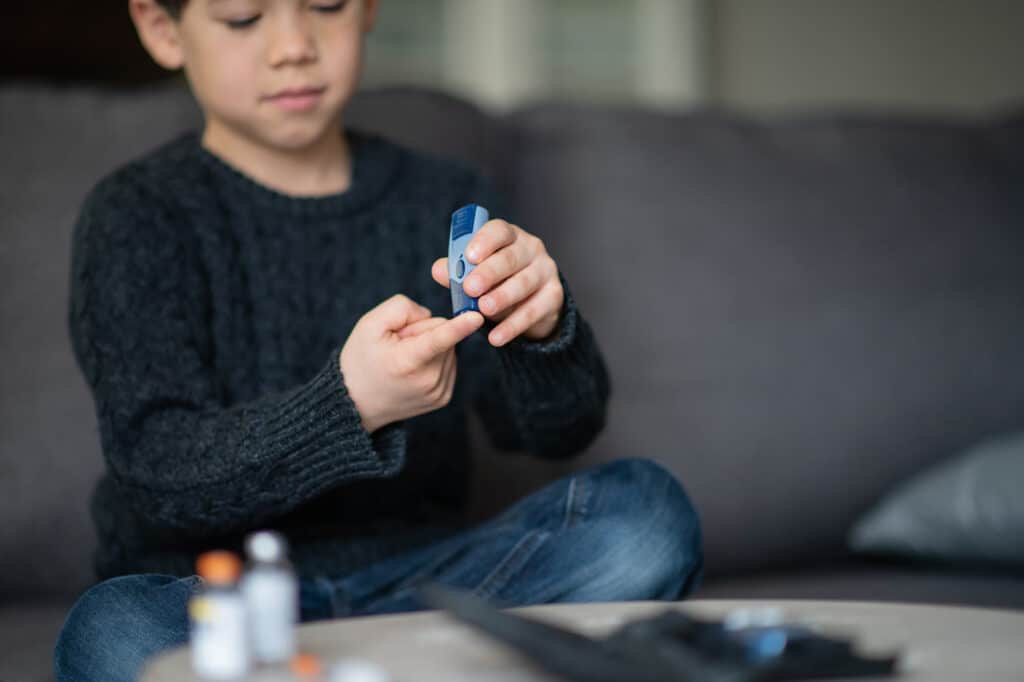Shadow for Childhood Cancer Survivors
Overcoming childhood cancer is a monumental victory, but for many survivors, the battle for long-term health continues. A new study reveals a startling threat: childhood cancer survivors are twice as likely to develop prediabetes and diabetes compared to their healthy peers.
This sobering finding, published in the Journal of Clinical Oncology, calls for urgent action in early detection, intervention, and personalized care for this vulnerable population.
Tip: Please fill out the form if you or a friend would like more information on glucose monitoring devices.
The Study’s Stark Reality:
Led by Dr. Stephanie Dixon, an oncologist at St. Jude’s Children’s Hospital, the research followed over 3,500 childhood cancer survivors alongside a control group. The age range spanned from the youngest survivor entering their 20s to the oldest reaching their 40s. The results paint a concerning picture:
- Prediabetes Explodes: By their 30s, a staggering 29% of childhood cancer survivors were diagnosed with prediabetes compared to 18% in the control group. This alarming trend continued, with this number skyrocketing to 45.5% by their 40s.
- Diabetes Takes Root: The prevalence of full-blown diabetes was also significantly higher in childhood cancer survivors. In their 30s, 6.5% exhibited the disease compared to 4.7% in the control group. This gap widened further in their 40s, with 14% of survivors facing diabetes compared to 7.4% of the control group.
- Heart Disease Lurks: Prediabetes and diabetes were not isolated concerns. These conditions significantly increased the risks of heart attack, cardiomyopathy, and stroke in childhood cancer survivors, potentially placing their cardiovascular health at significant risk.
Must Read CGMs in noncritical care hospitals optimizes glycemic control
Early Detection and Intervention: A Beacon of Hope:
While these statistics are concerning, Dr. Dixon emphasizes that hope remains. Prediabetes serves as a crucial early warning sign, presenting an opportunity to prevent the progression to full-blown diabetes through:
- Lifestyle Modifications: Implementing healthy dietary changes, regular physical activity, and weight management strategies can significantly lower the risk of diabetes.
- Proactive Physicians: Healthcare professionals must play a key role in recognizing prediabetes and diabetes in childhood cancer survivors, implementing comprehensive screening programs and providing targeted follow-up care.
- Targeted Interventions: Dr. Dixon calls for the development and implementation of tailored interventions, such as specialized lifestyle programs and close monitoring strategies, specifically designed to mitigate diabetes risks in this vulnerable population.
Don’t miss the Guide about Wegovy Dosage Guide: The Best Way For Weight Loss
Beyond the Study: A Call to Action:
The research sheds light on a critical issue that demands immediate attention. Healthcare professionals, researchers, and policymakers must work together to expand on these findings and create a comprehensive framework for:
- Increased Awareness: Educating childhood cancer survivors, their families, and the healthcare community about the heightened risk of diabetes and the importance of early detection.
- Improved Screening Practices: Implementing standardized screening protocols for prediabetes and diabetes in childhood cancer survivors at regular intervals throughout their lives.
- Developing Personalized Care Plans: Creating individualized care plans that address the specific needs and risk factors of each survivor, incorporating lifestyle modifications, medication support, and ongoing monitoring.
- Funding Research: Continued research is crucial to understand the underlying mechanisms behind the increased diabetes risk in childhood cancer survivors and to develop further preventative and therapeutic strategies.
Also, read about Link Between Type 1 Diabetes and Obesity
By recognizing the severity of this threat and prioritizing early detection, intervention, and personalized care, we can help childhood cancer survivors not only overcome their initial illness but also thrive in the long term, leading healthy and fulfilling lives.


